Hair Restoration
Hair Transplants
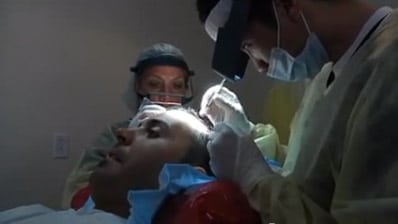
The hairs on the sides and the back of your head are not affected by male pattern baldness (MPB). As a result a hair transplant surgeon can remove donor hair follicles from the sides and back and relocate them on the top of the scalp where hair loss has occurred and the newly transplanted hair will grow exactly as it had from the donor region.
Follicular Unit Extraction (FUE)
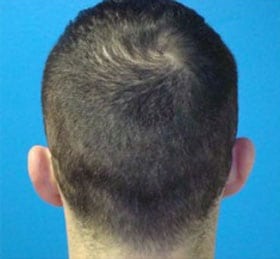
For individuals who either want the option to shave their head or keep their hair very short after hair restoration surgery, Follicular Unit Extraction (FUE) is the latest technological advance in surgical hair restoration.
It is an exacting technique that minimizes any scar appearance in the back of the scalp and requires great attention to detail.
Follicular Unit Grafting
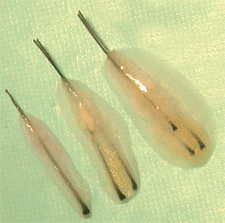
The days of the “plugs and corn rows” are gone and the age of single follicular unit transplantation has arrived. Through the use of the these naturally occurring hair grafts along with new and improved instrumentation, the accomplished hair transplantation surgeon can create a natural hair appearance that is appropriate for each individual patient.
Hair Transplant Repairs
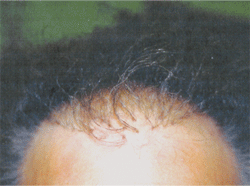
Many of our patients seek refinement and revision of previous hair transplants, scalp reductions and flaps performed by other physicians. Large grafts containing 6-20 hairs are noticeable and unnatural looking. Straight hairlines with atypical roundness are characteristic of these older techniques and lend a very unnatural and obvious result.
An individual who had a procedure that involved the use of obvious “hair plugs,” will likely be unhappy with the results over time and may wonder what can be done.
Medical Treatments

Medical treatment can delay the rate of hair loss and preserve an acceptable appearance until the physician and patient determines that hair transplantation is the best option. Medical treatment is often continued after hair transplantation to help keep the pre-existing hair.
Female Hair Transplantation
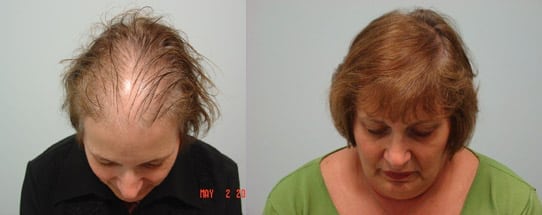
Female with diffuse hair loss before (L) and after (R)
A hair transplant is an option only for woman who have a thick enough area of hair in the the back and sides of the head to “donate” to a more paltry part of her scalp. But many women don’t experience this kind of localized balding; instead their entire head of hair thins out during menopause or as they age.
Lash & Brow Enhancement
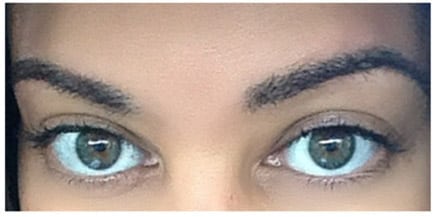
Restored Eyebrows by Dr. Scott Boden
